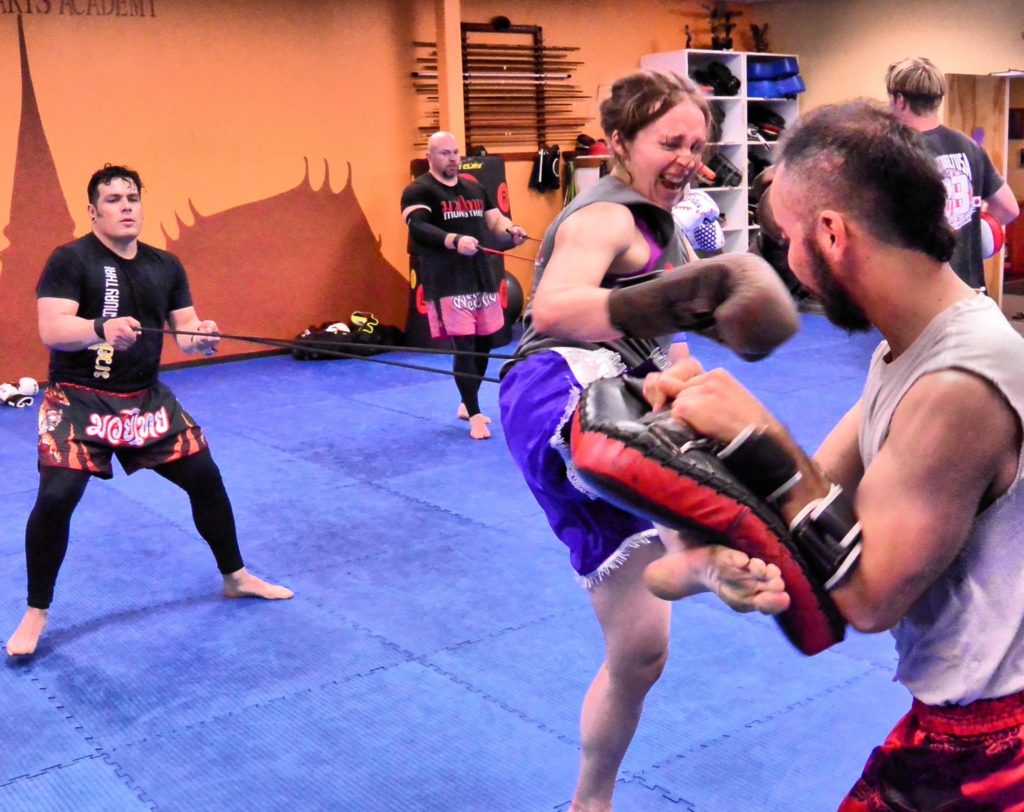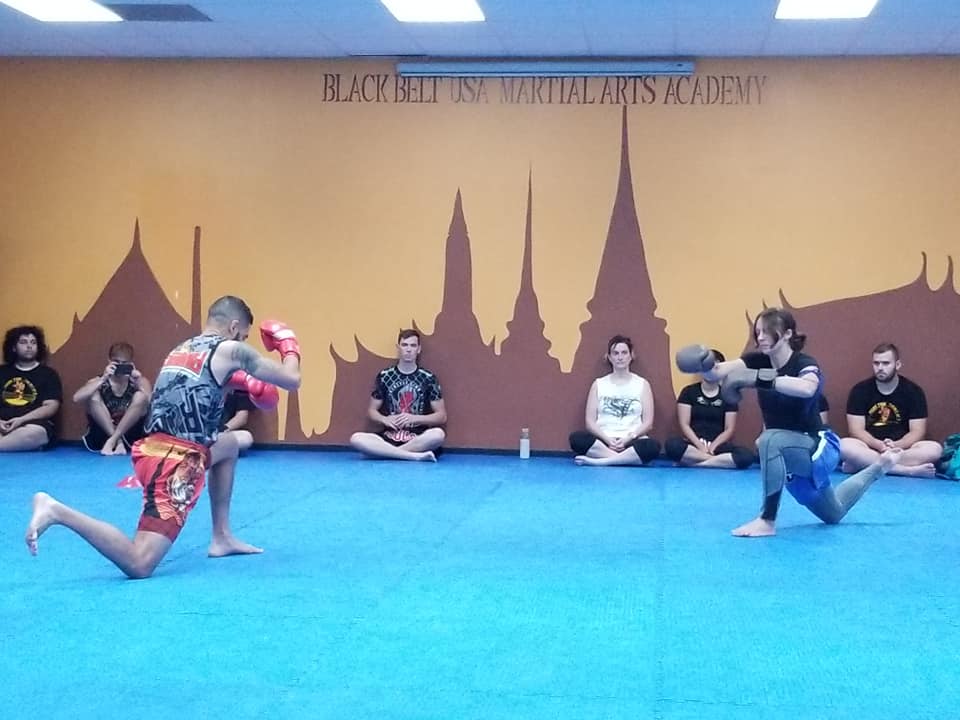Kru Story: Chapter 3 – Only the Strong
I hope you know this already, but in case you didn’t or just need a little reminder, people aren’t born strong. We’re born incredibly helpless weaklings. Out of the whole animal kingdom, new born humans rank among the weakest. Many animals can walk and even run within hours of birth. We can’t walk until nearly two years old (and then we’re terrible at it), and we’re physically dependent on our parents for many years. What I am leading you to is the fact that strength is trained into us. By struggling with our environment, and no I’m not just talking about weather and earth quakes here, we endure, survive, and become strong. Oh sure, some of us have genetics that make it easier for us to build muscle or absorb the oxygen we breathe more efficiently. But to actually be strong, you have to endure.

Being strong enough to pass a Kru test doesn’t come easily – physically, mentally, or emotionally. And yes, those are all connected. You have to train that strength in. When we finished Chapter 3, I left you hanging out in the early part of 2019. I was traveling for work, only able to training at Black Belt USA (or even hit a bag for that matter) one day a week. I was doing the best road training possible, as I described in the previous chapter. I stuck to this routine like my life depended on it, day in and day out. This, in itself, was developing a sort of strength that would become crucial in my test, though it certainly wasn’t all the strength I needed or that I was going to get. In early 2019, my environment fostered some real struggle, and to understand a little more about how my strength was developing, let’s look a little closer at what I was living through.
Just so you’re prepped, this chapter is going to be weighty.
As mentioned before, my job is with my father’s software company, and the company is very small. In any small business, employees end up with a wide range of responsibilities because of simple math. There are fewer employees amongst whom one can divide the tasks. So even though my primary responsibility was designing and coding the User Interface of the software application, I also did routine maintenance tasks on the old production version and was responsible for documentation of the new version, training end users, and implementation of the new version on site (my father is honestly old enough that doing that kind of intense travel would have been detrimental to his health; it was far too risky). I was wearing a lot of hats and changing them out frequently. Often, I wore each hat every day. To further complicate matters, the contract on which this new software version depended is the primary contract for this company. It is the bread and butter or rice and fish sauce if you will. Successful completion would actually determine the future viability of the business. It was kind of important. And to even further complicate, my dad is nearing retirement age. If this venture failed, going out and finding another job would have been very different experience for him than it would be for me, as he would likely be passed over for younger candidates. In hindsight, my own interpretations of the situation contributed significantly to the intensity, pressure, and gravity of it all. However, they were very real challenges, and the responsibility on my shoulders was very real. Couple all of this with extreme exhaustion from travel and working extremely long work weeks, and it was only a matter of time before my own body started contributing to the struggle as well.
It started with an increase in migraines. I’ve had them occasionally since college – always the icky ones with the auras, but I began having them much more frequently. In April, I got sick (a cold or the flu, not really sure which) while on the road. I ended up in an Urgent Care, and when they took my vitals, my blood pressure was 150/90. Normal for me is 110’s/low 70’s or high 60’s. Around the first of May, I was driving home from a facility on Friday evening and suddenly couldn’t catch my breath. I felt like someone was sitting on my chest and my lungs wouldn’t fully inflate. While I did my best to calm down and control my breathing, I wondered if I had developed asthma. Not something I’ve ever had, but I couldn’t breath well (which was weird because I was training a lot and it never happened when I exercised). I felt like I could see everything from outside, spiraling out of control and no matter what I did or tried it was going to run its course. It passed, but I was still shaken up when I got home. At this point, it occurred to me that the episode might have been a panic attack. I hadn’t felt afraid or nervous before it started, but other than that, it was pretty textbook (Bachelor’s degree in Psychology here).
Over the next few months, I had more of them…and more migraines. I wasn’t sleeping well, and I felt like I was really coming unhinged. Sometimes, I wanted so desperately for it to all just stop I wondered how much longer I could really hold it together. But I focused on taking one more step – let’s be honest, I took that next step for my dad. Fortunately, in mid-June, our project was put on hold, so we could address a backlog of requests and the client could assign a new project manager when the former one left the organization. The universe had aligned in my favor. I was able to come home and stay off the road for a little over two months. The first thing I did was go see my doctor.
Turns out, I had not suddenly developed asthma in my late 30’s. I had an unhealthy dose of clinical anxiety and was indeed having panic attacks. Sitting in the exam room with my doctor asking me if I would be willing to take an anxiety medication felt very surreal. My family and friends know me as “strong” – the martial artist, the skateboarder, the one who will listen to you vent, the one who gets the job done. But with high blood pressure, migraines, insomnia, and panic attacks, I needed help. Something had to give.
What I didn’t realize in that moment was how much stronger I was becoming by facing my circumstances and surviving them. Just like I needed the help of my Arjarns, Krus, and training partners to learn and grow in Muay Thai, I needed the help of my doctor, a good therapist, and some very dear family and friends to learn how to manage this. And learning to manage this was going to be a huge hurdle for my Kru test.

So I went on the med, kept appointments with my therapist, and began a regular meditation practice. And while battling migraines, panic attacks, and insomnia to up my mental and emotional strength, Kru training at BBUSA began for me in earnest so my physical strength could follow suit. Here came the after class rounds with the Krus. The circumstances really were terrible, but strength can’t develop in a vacuum of hardships. I suppose I was fortunate to have that in spades.
In early summer before I had come off the road, I remember my husband Mike assuring me that at some point, this would all be over. To which I tearfully replied, “Yes, but what will be left of me?”
You all know I read like a fiend. After returning home, I began reading renown mythologist Joseph Campbell’s The Masks of God. It is a four volume survey and examination of mythology and its development across time and the planet. The first volume is Primitive Mythology, and it is were I began. In the chapters on Shamanism, I found that all over the world, shamans went through some sort of initiation ordeal. You didn’t get the title if you didn’t go through the ordeal. These initiations were all really graphic and brutal and, most of the time, involved some sort of dismemberment – a taking a part of the person (of course we can argue about the literalism of this, but remember it’s mythology where the literal rarely matters). If the candidate is a true shaman he/she puts his/herself back together. And in the moment of reading this, feeling completely disjointed and a part, I found the answer to my question.
“Yes, but what will be left of me?”
The very best parts.
Leave a Reply